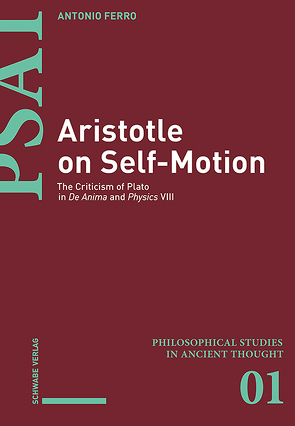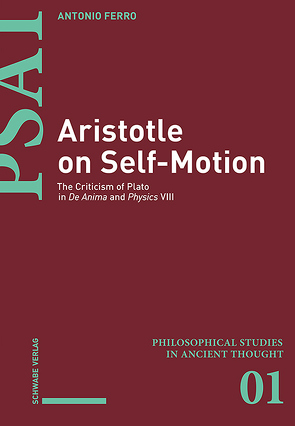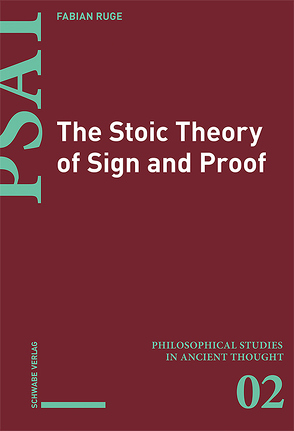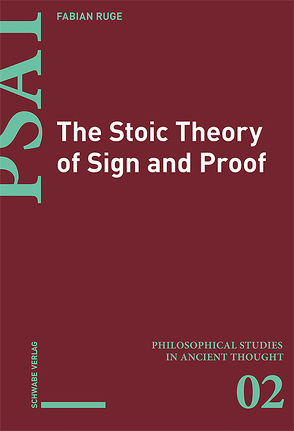The theory of sign and proof is an essential component of Stoic epistemology. This book examines the fragmentary evidence from Sextus Empiricus and sheds light on the two aspects that characterise signs and proofs: the logical relation that holds between a sign and that which it signifies and an additional epistemic relation that is called revelation. All signs feature in conditionals that are true in virtue of the strong modal account of conditionals that the Stoics developed. This modal account is one aspect that makes it possible to gain certain knowledge of that which is signified. But signs and proofs must also reveal that which they signify to produce knowledge. This requirement is fulfilled when an inference proceeds from premises that are justified through knowledge of the causal relation in virtue of which the premises are true.
Aktualisiert: 2022-07-11
> findR *
The theory of sign and proof is an essential component of Stoic epistemology. This book examines the fragmentary evidence from Sextus Empiricus and sheds light on the two aspects that characterise signs and proofs: the logical relation that holds between a sign and that which it signifies and an additional epistemic relation that is called revelation. All signs feature in conditionals that are true in virtue of the strong modal account of conditionals that the Stoics developed. This modal account is one aspect that makes it possible to gain certain knowledge of that which is signified. But signs and proofs must also reveal that which they signify to produce knowledge. This requirement is fulfilled when an inference proceeds from premises that are justified through knowledge of the causal relation in virtue of which the premises are true.
Aktualisiert: 2022-08-01
> findR *

What is Aristotle’s considered view of animal self-motion? According to several scholars, Aristotle ends up rejecting this very notion as a result of his criticism of Plato’s theory of a self-moving soul. Contrary to this still widespread assumption, the present study argues that his critical engagement with Plato is not confined to negative results, but achieves largely positive outcomes, which add up to a rich and nuanced picture of self-motion.
Ferro makes his case by offering a novel reading of a handful of controversial passages from De Anima (I 3–4; III 9–10) and Physics VIII, where Aristotle reacts to three aspects of Plato’s theory of self-motion: the claim that soul itself is a self-mover (and therefore a proper subject of motion), the assumption that self-movers enjoy strong causal autonomy, and the link between motion, desire and soul partition. Through a careful reading of the relevant passages, which does justice to their proper context and significance, Ferro shows that Aristotle’s critical re-appropriation of self-motion results in a largely coherent doctrine with major repercussions for Aristotelian psychology and philosophy of nature.
Aktualisiert: 2022-03-17
> findR *

What is Aristotle’s considered view of animal self-motion? According to several scholars, Aristotle ends up rejecting this very notion as a result of his criticism of Plato’s theory of a self-moving soul. Contrary to this still widespread assumption, the present study argues that his critical engagement with Plato is not confined to negative results, but achieves largely positive outcomes, which add up to a rich and nuanced picture of self-motion.
Ferro makes his case by offering a novel reading of a handful of controversial passages from De Anima (I 3–4; III 9–10) and Physics VIII, where Aristotle reacts to three aspects of Plato’s theory of self-motion: the claim that soul itself is a self-mover (and therefore a proper subject of motion), the assumption that self-movers enjoy strong causal autonomy, and the link between motion, desire and soul partition. Through a careful reading of the relevant passages, which does justice to their proper context and significance, Ferro shows that Aristotle’s critical re-appropriation of self-motion results in a largely coherent doctrine with major repercussions for Aristotelian psychology and philosophy of nature.
Aktualisiert: 2022-03-17
> findR *
MEHR ANZEIGEN
Bücher zum Thema PSAT
Sie suchen ein Buch über PSAT? Bei Buch findr finden Sie eine große Auswahl Bücher zum
Thema PSAT. Entdecken Sie neue Bücher oder Klassiker für Sie selbst oder zum Verschenken. Buch findr
hat zahlreiche Bücher zum Thema PSAT im Sortiment. Nehmen Sie sich Zeit zum Stöbern und finden Sie das
passende Buch für Ihr Lesevergnügen. Stöbern Sie durch unser Angebot und finden Sie aus unserer großen Auswahl das
Buch, das Ihnen zusagt. Bei Buch findr finden Sie Romane, Ratgeber, wissenschaftliche und populärwissenschaftliche
Bücher uvm. Bestellen Sie Ihr Buch zum Thema PSAT einfach online und lassen Sie es sich bequem nach
Hause schicken. Wir wünschen Ihnen schöne und entspannte Lesemomente mit Ihrem Buch.
PSAT - Große Auswahl Bücher bei Buch findr
Bei uns finden Sie Bücher beliebter Autoren, Neuerscheinungen, Bestseller genauso wie alte Schätze. Bücher zum
Thema PSAT, die Ihre Fantasie anregen und Bücher, die Sie weiterbilden und Ihnen wissenschaftliche
Fakten vermitteln. Ganz nach Ihrem Geschmack ist das passende Buch für Sie dabei. Finden Sie eine große Auswahl
Bücher verschiedenster Genres, Verlage, Autoren bei Buchfindr:
Sie haben viele Möglichkeiten bei Buch findr die passenden Bücher für Ihr Lesevergnügen zu entdecken. Nutzen Sie
unsere Suchfunktionen, um zu stöbern und für Sie interessante Bücher in den unterschiedlichen Genres und Kategorien
zu finden. Unter PSAT und weitere Themen und Kategorien finden Sie schnell und einfach eine Auflistung
thematisch passender Bücher. Probieren Sie es aus, legen Sie jetzt los! Ihrem Lesevergnügen steht nichts im Wege.
Nutzen Sie die Vorteile Ihre Bücher online zu kaufen und bekommen Sie die bestellten Bücher schnell und bequem
zugestellt. Nehmen Sie sich die Zeit, online die Bücher Ihrer Wahl anzulesen, Buchempfehlungen und Rezensionen zu
studieren, Informationen zu Autoren zu lesen. Viel Spaß beim Lesen wünscht Ihnen das Team von Buchfindr.



